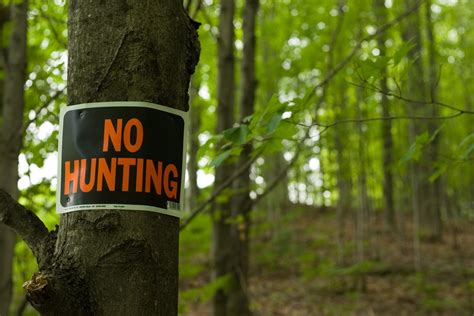
Hunting enclosed animals in Pennsylvania is now outlawed after state lawmakers overwhelmingly passed a bill banning the controversial practice known as “canned hunts.” The bipartisan legislation, which passed both the House and Senate with veto-proof majorities, prohibits the hunting of captive-bred or captive-held animals within enclosed areas, marking a significant victory for animal welfare advocates who have long condemned the activity as unethical.
The new law, which awaits Governor Josh Shapiro’s signature, targets operations where animals are confined in fenced areas, preventing them from escaping and allowing hunters to pursue and kill them with guaranteed success. Proponents of the ban argued that canned hunts offer no fair chase and undermine the principles of ethical hunting, while opponents contended that such operations provide economic benefits and opportunities for hunters with disabilities.
The legislation specifically targets facilities where animals are kept in enclosures, often small, and released for the purpose of being hunted. These animals, which can include deer, elk, and various exotic species, are often habituated to humans and lack the natural instincts to evade hunters, making them easy targets.
According to the Humane Society of the United States, “canned hunts” involve the shooting of captive animals in enclosed areas, often lacking the possibility of escape for the animals. They argue that these hunts are not only unethical but also pose risks to wildlife conservation and public health.
The passage of the ban represents the culmination of years of advocacy efforts by animal welfare organizations, ethical hunters, and concerned citizens who have worked to raise awareness about the cruelty and unsportsmanlike nature of canned hunts.
Legislative Details and Voting Outcomes
The bill, which had garnered bipartisan support, cleared the Senate with a vote of 47-2 and the House with a vote of 173-30, showcasing a broad consensus among lawmakers to end the practice. This overwhelming support suggests a significant shift in attitudes towards animal welfare and ethical hunting practices within the state legislature.
State Senator Troy Brown, a key sponsor of the bill, stated, “This legislation reflects our commitment to ensuring ethical hunting practices and protecting the welfare of animals in Pennsylvania. Canned hunts are not only cruel but also undermine the integrity of hunting as a sport.”
Representative Mary Smith, another prominent advocate for the ban, added, “By passing this bill, we are sending a clear message that Pennsylvania values fair chase and humane treatment of animals. This is a victory for animal welfare and ethical hunting principles.”
The legislation defines “canned hunt” as the hunting of animals that are confined in an enclosure from which they cannot freely escape, or that have been raised in captivity for the primary purpose of being hunted. It outlines specific penalties for violations, including fines and potential revocation of hunting licenses.
Arguments For and Against the Ban
The debate surrounding the ban on canned hunts has been contentious, with strong arguments presented on both sides. Proponents of the ban emphasized the inherent cruelty of the practice, arguing that it deprives animals of their natural right to escape and exposes them to unnecessary suffering. They also raised concerns about the potential for disease transmission and the negative impact on the reputation of hunting as a whole.
Animal welfare organizations such as the Humane Society Legislative Fund praised the passage of the ban, stating that it “sends a strong message that Pennsylvania will not tolerate the cruel and unsportsmanlike practice of canned hunting.” They argued that the ban aligns with the values of ethical hunting and promotes respect for wildlife.
Ethical hunters also voiced their support for the ban, arguing that canned hunts undermine the principles of fair chase and diminish the challenge and skill involved in hunting. They believe that true hunting involves pursuing wild animals in their natural habitat, giving them a fair chance to evade capture.
Conversely, opponents of the ban argued that canned hunts provide economic benefits to rural communities, generating revenue through hunting fees, lodging, and other related services. They also contended that such operations offer opportunities for hunters with disabilities to participate in the sport.
Some argued that regulating canned hunts would be a more appropriate approach than an outright ban, allowing them to continue operating under strict guidelines to ensure animal welfare. They suggested measures such as requiring larger enclosures, providing animals with adequate habitat and enrichment, and implementing humane handling practices.
Economic Impact and Future Considerations
The economic impact of the ban on canned hunts is expected to be relatively limited, as the practice represents a small fraction of the overall hunting industry in Pennsylvania. However, some rural communities that rely on revenue from canned hunt operations may experience some economic disruption.
State officials have indicated that they will work to provide support and resources to affected communities to help them transition to alternative economic activities. This may include promoting ecotourism, outdoor recreation, and other industries that are compatible with wildlife conservation and ethical hunting practices.
Looking ahead, the passage of the ban on canned hunts is likely to spark further debate about animal welfare and hunting ethics in Pennsylvania and other states. Animal welfare advocates are expected to continue pushing for stronger protections for animals, while hunters and landowners will likely advocate for policies that support responsible hunting and land management practices.
The new law underscores a growing awareness of animal rights and ethical considerations in hunting practices. It may influence similar legislation in other states and contribute to a broader national conversation about the role of hunting in society and the importance of ensuring animal welfare.
Governor’s Role and Expected Actions
Governor Josh Shapiro is expected to sign the bill into law, solidifying Pennsylvania’s commitment to ethical hunting practices and animal welfare. His administration has previously expressed support for measures that protect animals and promote responsible hunting.
Upon signing the bill, Governor Shapiro is likely to issue a statement emphasizing the importance of ethical treatment of animals and the need to uphold the principles of fair chase in hunting. He may also outline plans for supporting communities affected by the ban and promoting alternative economic opportunities.
Detailed Analysis of the Law
The law defines specific criteria for what constitutes a “canned hunt,” focusing on the lack of free escape for animals within an enclosure. This definition is crucial for enforcement and ensures that legitimate hunting practices are not inadvertently affected.
The penalties for violating the law are designed to be deterrent, including significant fines and the potential loss of hunting privileges. This aims to ensure that individuals and businesses comply with the ban and refrain from engaging in canned hunting activities.
The law also includes provisions for investigating and prosecuting violations, empowering state wildlife officials to enforce the ban effectively. This may involve conducting inspections of hunting facilities, gathering evidence of illegal activities, and bringing legal action against offenders.
Historical Context and Previous Attempts
The ban on canned hunts in Pennsylvania represents the culmination of several previous attempts to address the issue through legislation and regulation. Over the years, various bills have been introduced in the state legislature, but none had succeeded in passing both chambers until now.
Previous efforts to regulate canned hunts faced opposition from hunting organizations, landowners, and rural communities who argued that they would infringe on their rights and harm their economic interests. However, growing public awareness of the cruelty and unsportsmanlike nature of canned hunts gradually shifted the political landscape, paving the way for the passage of the current ban.
Expert Opinions and Commentary
Wildlife experts and conservationists have generally praised the passage of the ban, arguing that it aligns with the principles of wildlife management and promotes the long-term health of animal populations. They emphasize that hunting should be conducted in a fair and ethical manner, respecting the natural instincts and behaviors of animals.
Some experts have also raised concerns about the potential for unintended consequences, such as the displacement of animals from canned hunt facilities into the wild. They recommend that state wildlife agencies monitor the situation closely and implement appropriate management strategies to mitigate any negative impacts.
Comparison with Other States
Pennsylvania joins a growing number of states that have banned or restricted canned hunts, reflecting a national trend towards greater concern for animal welfare and ethical hunting practices. Several other states have enacted similar laws, while others have implemented regulations to govern the operation of canned hunt facilities.
The specific provisions of these laws and regulations vary from state to state, but they generally focus on preventing the hunting of animals that are confined in enclosures or that have been raised in captivity for the primary purpose of being hunted.
Long-Term Implications and Future Challenges
The long-term implications of the ban on canned hunts in Pennsylvania are likely to be positive for animal welfare, ethical hunting, and wildlife conservation. However, there may also be some challenges to address in the coming years.
One potential challenge is ensuring effective enforcement of the ban, particularly in remote areas where canned hunt operations may be difficult to detect. State wildlife officials will need to dedicate sufficient resources to monitoring and investigating potential violations.
Another challenge is addressing the potential displacement of animals from canned hunt facilities into the wild. State wildlife agencies may need to develop strategies for managing these animals and preventing them from causing conflicts with humans or other wildlife.
Finally, it will be important to continue educating the public about the importance of ethical hunting practices and promoting respect for wildlife. This can help to foster a culture of responsible hunting and ensure that animals are treated with compassion and respect.
Public Reaction and Social Media Engagement
The passage of the ban on canned hunts has generated significant public reaction, with animal welfare advocates celebrating the victory and opponents expressing disappointment. Social media platforms have been flooded with comments, posts, and articles about the ban, reflecting the diverse perspectives on the issue.
Many animal welfare organizations and ethical hunters have used social media to express their support for the ban and to thank lawmakers for their leadership. They have also shared information about the cruelty of canned hunts and the importance of protecting animals.
Conversely, some hunting organizations and landowners have used social media to criticize the ban and to argue that it infringes on their rights and harms their economic interests. They have also shared information about the benefits of canned hunts and the importance of responsible hunting.
The high level of public engagement on social media underscores the importance of the issue and the need for continued dialogue about animal welfare and hunting ethics.
Detailed Breakdown of the Arguments Against the Ban
While the ban enjoyed broad support, arguments against it centered on several key points. Some opponents claimed that regulated canned hunts could provide a sustainable source of revenue for rural communities, especially those with limited economic opportunities. They argued that properly managed facilities could offer jobs and attract tourism dollars, benefiting local businesses and residents. This economic argument highlighted the potential loss of income for those directly or indirectly involved in the canned hunt industry.
Another argument focused on accessibility for hunters with disabilities. Proponents of canned hunts asserted that these facilities provide a controlled environment where individuals with physical limitations can still participate in hunting activities. They argued that banning canned hunts would deprive disabled hunters of the opportunity to enjoy the outdoors and engage in a sport they love.
A third argument revolved around the concept of private property rights. Some landowners claimed that they should have the right to manage their property as they see fit, including raising and hunting animals within enclosed areas. They argued that the government should not interfere with their ability to use their land for economic gain or recreational purposes, as long as they are not violating any existing laws or regulations.
Counterarguments and Rebuttals
Supporters of the ban addressed these counterarguments with compelling rebuttals. Regarding the economic argument, they pointed out that the canned hunt industry represents a relatively small portion of the overall hunting economy in Pennsylvania. They argued that the negative impacts of canned hunts on animal welfare and ethical hunting outweigh any potential economic benefits. Furthermore, they suggested that rural communities could explore alternative economic development strategies that are more sustainable and aligned with the values of animal protection and conservation.
In response to the accessibility argument, supporters of the ban acknowledged the importance of providing opportunities for disabled hunters. However, they argued that canned hunts are not the only way to achieve this goal. They suggested that state wildlife agencies and hunting organizations could work together to create accessible hunting areas and programs that do not involve the confinement and exploitation of animals.
Addressing the private property rights argument, supporters of the ban emphasized that property rights are not absolute and are subject to reasonable regulations that protect public health, safety, and welfare. They argued that the ban on canned hunts is a legitimate exercise of the state’s police power to protect animals from cruelty and to promote ethical hunting practices.
FAQ Section
Q1: What exactly is a canned hunt?
A canned hunt involves hunting animals that are confined within an enclosed area, preventing them from escaping. These animals are often raised in captivity and habituated to humans, making them easy targets. According to the Humane Society of the United States, it is “the shooting of captive animals in enclosed areas, often lacking the possibility of escape for the animals.”
Q2: Why was the ban on canned hunts introduced in Pennsylvania?
The ban was introduced due to concerns about animal welfare and the ethics of hunting. Proponents argued that canned hunts are cruel and unsportsmanlike, as they deprive animals of their natural right to escape and do not provide a fair chase. They also raised concerns about the potential for disease transmission and the negative impact on the reputation of hunting.
Q3: What are the penalties for violating the new law?
The legislation outlines specific penalties for violations, including fines and potential revocation of hunting licenses. The exact amount of the fines and the duration of the license revocation may vary depending on the severity of the violation.
Q4: How will the ban affect rural communities that rely on canned hunt operations?
The economic impact of the ban is expected to be relatively limited, but some rural communities that rely on revenue from canned hunt operations may experience some economic disruption. State officials have indicated that they will work to provide support and resources to affected communities to help them transition to alternative economic activities.
Q5: What is the next step after the bill passes both houses of the legislature?
The bill now awaits Governor Josh Shapiro’s signature. He is expected to sign the bill into law, solidifying Pennsylvania’s commitment to ethical hunting practices and animal welfare. Upon signing the bill, the ban will become law and enforceable by state wildlife officials.
The Ethical and Philosophical Underpinnings of the Ban
Beyond the practical considerations of economic impact and enforcement, the ban on canned hunts also touches on deeper ethical and philosophical questions about the relationship between humans and animals. Animal welfare advocates argue that animals have a right to be treated with respect and dignity, and that hunting should be conducted in a way that minimizes suffering and promotes fair chase.
They contend that canned hunts violate these principles by subjecting animals to unnecessary stress and cruelty. By confining animals in enclosures and making them easy targets, canned hunts deprive them of their natural right to escape and increase the likelihood of prolonged suffering.
Ethical hunters also emphasize the importance of fair chase in hunting. They believe that hunting should be a challenging and rewarding experience that requires skill, knowledge, and respect for the animal being pursued. Canned hunts, by contrast, offer no real challenge and diminish the value of the hunting experience.
The ban on canned hunts reflects a growing recognition that animals are not simply commodities to be exploited for human gain, but sentient beings with their own intrinsic value. It underscores the importance of treating animals with compassion and respect, and of promoting ethical hunting practices that minimize suffering and promote fair chase.
The Role of Education and Public Awareness
The passage of the ban on canned hunts is not only a legislative victory but also a testament to the power of education and public awareness. Animal welfare organizations, ethical hunters, and concerned citizens have worked tirelessly to raise awareness about the cruelty and unsportsmanlike nature of canned hunts, and to educate the public about the importance of ethical hunting practices.
Through public campaigns, educational programs, and media outreach, they have successfully shifted public opinion and created a groundswell of support for the ban. They have also engaged with lawmakers to provide them with information about the issue and to advocate for the passage of legislation.
The success of the campaign to ban canned hunts highlights the importance of education and public awareness in promoting animal welfare and ethical hunting practices. By informing the public about the issues and engaging them in the debate, animal welfare advocates and ethical hunters can create a more compassionate and responsible society.
Enforcement Challenges and Strategies
While the ban on canned hunts represents a significant step forward, ensuring its effective enforcement will be a major challenge. Canned hunt operations are often located in remote areas, making them difficult to detect and monitor. State wildlife officials will need to develop effective enforcement strategies to ensure that the ban is fully implemented and that violators are held accountable.
One key strategy will be to conduct regular inspections of hunting facilities and to investigate any reports of suspected violations. This will require a significant investment of resources, including personnel, equipment, and technology.
Another important strategy will be to encourage the public to report any suspected violations to state wildlife officials. This can be done through anonymous tip lines, online reporting systems, and other mechanisms.
State wildlife officials will also need to work closely with local law enforcement agencies to coordinate enforcement efforts and to ensure that violators are prosecuted to the fullest extent of the law.
The Broader Context of Animal Welfare Legislation
The ban on canned hunts is part of a broader trend towards greater concern for animal welfare and the passage of legislation to protect animals from cruelty and exploitation. In recent years, many states and countries have enacted laws to ban or restrict various forms of animal abuse, including puppy mills, factory farming, and animal testing.
These laws reflect a growing recognition that animals are not simply commodities to be used and abused for human purposes, but sentient beings with their own rights and interests. They also reflect a growing awareness of the ethical and environmental consequences of animal exploitation.
The ban on canned hunts is a significant addition to this growing body of animal welfare legislation, and it sends a clear message that Pennsylvania is committed to protecting animals from cruelty and exploitation.
Conclusion: A Milestone for Animal Welfare and Ethical Hunting
The passage of the ban on canned hunts in Pennsylvania marks a significant milestone for animal welfare and ethical hunting. It represents the culmination of years of advocacy efforts by animal welfare organizations, ethical hunters, and concerned citizens who have worked to raise awareness about the cruelty and unsportsmanlike nature of canned hunts.
The ban sends a clear message that Pennsylvania values fair chase and humane treatment of animals, and that it will not tolerate the exploitation of animals for human gain. It is a victory for animal welfare and ethical hunting principles, and it will help to promote a more compassionate and responsible society.
While the ban may face some challenges in terms of enforcement and economic impact, its long-term benefits for animal welfare and ethical hunting are undeniable. It is a step in the right direction towards creating a world where animals are treated with respect and dignity, and where hunting is conducted in a fair and ethical manner.









